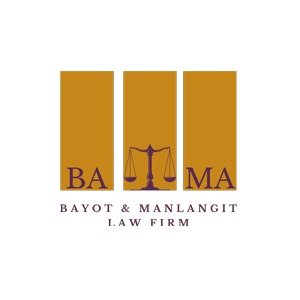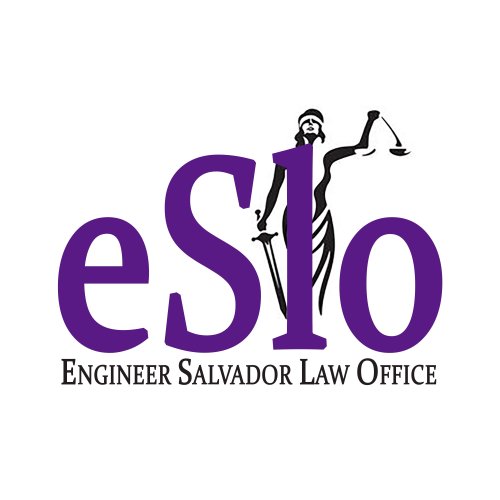Best Sanctions & Export Controls Lawyers in Cavite City
Share your needs with us, get contacted by law firms.
Free. Takes 2 min.
List of the best lawyers in Cavite City, Philippines
About Sanctions & Export Controls Law in Cavite City, Philippines
Sanctions and export controls law in Cavite City, Philippines, refers to the framework of rules and regulations that oversee the transfer of goods, technology, and services to other countries, especially those subject to international sanctions. These laws aim to ensure national security, comply with international agreements, and prevent the proliferation of sensitive items or technologies. While Cavite City follows national laws set by the Philippine government, local implementation and compliance are crucial, especially in areas with economic zones, ports, and commercial activities. Individuals and businesses operating in Cavite City must be aware of these laws to avoid legal issues and ensure they conduct their transactions within the legal boundaries.
Why You May Need a Lawyer
Sanctions and export controls may appear straightforward, but the legal obligations can be complex. Here are some common situations where seeking help from a lawyer experienced in this field can be essential:
- You are an exporter or importer of goods and need to understand which products are subject to export controls.
- Your business trades with entities or individuals from countries subject to Philippine or international sanctions.
- You are facing an investigation or sanction for violating export control laws.
- You need advice regarding the proper licensing procedures for exporting restricted items.
- Your company is establishing compliance protocols to avoid breaching sanctions or export regulations.
- You want to know the impact of new or updated sanctions on your current contracts.
- You are a service provider and unsure if your services fall under export controls.
- You need representation before regulatory agencies or courts in case of alleged violations.
Obtaining legal advice helps prevent costly mistakes, ensures compliance, and protects your interests in regulatory matters.
Local Laws Overview
In Cavite City, all matters concerning sanctions and export controls are governed by national laws, particularly the Strategic Trade Management Act (STMA) of 2018, Customs Modernization and Tariff Act, and related legislation. These laws outline the country's commitment to non-proliferation of weapons of mass destruction, regulations on dual-use goods, and compliance with United Nations Security Council resolutions on trade sanctions.
Key elements of local regulation include:
- Registration and licensing requirements for exporters, brokers, and other stakeholders.
- Classification of goods that may be subject to restrictions or require authorization.
- Procedures for applying for export permits and end-user certificates.
- Penalties for violations, including fines, seizure of goods, and possible criminal prosecution.
- Obligations for reporting suspicious transactions or attempted illegal exports.
Cavite City has special economic zones and ports, which may be subject to heightened monitoring and compliance requirements. The Bureau of Customs and the Strategic Trade Management Office are key agencies responsible for enforcement and oversight.
Frequently Asked Questions
What is the Strategic Trade Management Act, and does it apply to businesses in Cavite City?
The Strategic Trade Management Act (STMA) is a national law regulating the export, import, re-export, and transit of strategic goods, including dual-use items. It applies nationwide, including Cavite City, covering local businesses involved in trade of regulated goods.
Which products are subject to export controls in the Philippines?
Export controls typically cover arms and military items, dual-use goods (with both civilian and military applications), certain chemicals, nuclear materials, and technology transfers. The government maintains a list of controlled goods and technology.
Do I need a license to export goods from Cavite City?
If the goods or technology you wish to export are on the controlled list or are subject to sanctions, you must apply for an export license from the Strategic Trade Management Office before proceeding.
What happens if I violate export controls or sanctions laws?
Violations can result in administrative fines, seizure of goods, cancellation of business licenses, and criminal charges. The severity depends on the nature and scale of the infraction.
Are there any local regulations unique to Cavite City regarding sanctions?
While there are no Cavite City-specific sanctions laws, enforcement agencies may focus on local compliance due to the city’s role as a commercial and industrial hub, especially within or near special economic zones and ports.
Can individuals be held liable for company violations of export controls?
Yes, responsible officers, employees, or agents of a company may be personally liable if they knowingly participate in, or fail to prevent, violations of sanctions or export control laws.
How can I check if my customer or supplier is subject to sanctions?
You can check government-issued sanctions lists, such as those from the United Nations or the Anti-Terrorism Council of the Philippines. A lawyer can assist in due diligence and risk assessment.
Is software or technology transfer subject to export controls?
Yes, exports of certain software, encryption technology, and technical know-how can be regulated under Philippine laws, especially if they are listed as dual-use items.
Does the law apply to online or digital exports?
Yes, electronic transfers of controlled technology or goods are covered by export controls. Compliance involves ensuring that digital exports do not violate national laws or international sanctions.
What government agencies oversee sanctions and export controls in Cavite City?
The Bureau of Customs, the Strategic Trade Management Office, and the Department of Trade and Industry are primary agencies for enforcement, licensing, and compliance in Cavite City.
Additional Resources
- Strategic Trade Management Office (STMO) - Main regulatory body for strategic goods and export controls.
- Bureau of Customs (BOC) - Oversees import and export transactions in Cavite City.
- Department of Trade and Industry (DTI) - Provides guidance on trade regulations and compliance.
- Anti-Terrorism Council - Issues sanctions lists applicable in the Philippines.
- Philippine Economic Zone Authority (PEZA) - For businesses operating within special economic zones.
- Local Chamber of Commerce and Industry - Can assist with general trade compliance guidance.
Next Steps
If you believe you may need legal assistance regarding sanctions or export controls in Cavite City, consider the following steps:
- Assess your activities and identify any goods, services, or transactions that may be subject to controls or sanctions.
- Consult with a lawyer experienced in Philippine trade, customs, or international law to review your compliance obligations.
- Gather relevant documents, such as licenses, export records, contracts, and company policies for initial consultation.
- Engage with regulatory agencies early, especially when applying for permits or responding to investigations.
- Implement or update internal compliance programs, conduct training, and establish clear reporting procedures within your business.
- Stay informed about changes in laws and regulations to avoid future violations and protect your business interests.
Taking prompt and informed action with experienced legal counsel helps ensure compliance and minimizes legal or financial risks in the area of sanctions and export controls in Cavite City, Philippines.
Lawzana helps you find the best lawyers and law firms in Cavite City through a curated and pre-screened list of qualified legal professionals. Our platform offers rankings and detailed profiles of attorneys and law firms, allowing you to compare based on practice areas, including Sanctions & Export Controls, experience, and client feedback.
Each profile includes a description of the firm's areas of practice, client reviews, team members and partners, year of establishment, spoken languages, office locations, contact information, social media presence, and any published articles or resources. Most firms on our platform speak English and are experienced in both local and international legal matters.
Get a quote from top-rated law firms in Cavite City, Philippines — quickly, securely, and without unnecessary hassle.
Disclaimer:
The information provided on this page is for general informational purposes only and does not constitute legal advice. While we strive to ensure the accuracy and relevance of the content, legal information may change over time, and interpretations of the law can vary. You should always consult with a qualified legal professional for advice specific to your situation.
We disclaim all liability for actions taken or not taken based on the content of this page. If you believe any information is incorrect or outdated, please contact us, and we will review and update it where appropriate.











